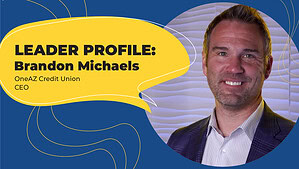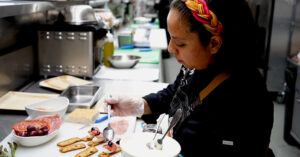Adding More Shelter Beds
In this episode, we are covered a recent Phoenix City Council vote to add more beds to the Human Services Campus (HSC). Our guests are Father Dan Ponisciack from Andre House of Hospitality and Cleo Lewis, a community advocate for the Human Services Campus.
Executive director of HSC and McQuaid Mission co-host, Amy Schwabenlender shares what we need know about this vote. Two year ago, HSC submitted an application to the City of Phoenix to add more shelter beds. They have to file a special permit with specific stipulations to be able to shelter more people because of Phoenix zoning laws.
When the campus opened in 2005, the requirements in the special permit were a maximum number of shelter beds of 425 and a site plan. But a lot changed since the campus opened in 2005.
Phoenix has seen a staggering increase in the unsheltered population since 2015. We are also experiencing rapid population growth and continue to be one of the fastest growing cities in the U.S. With that growth comes a need for more housing, particularly affordable housing.
Schwabenlender remind us that homelessness is a regional issue. “Our request does not solve this unsheltered population,” she said. “It’s not only a downtown Phoenix issue. It’s certainly not an issue that Human Services Campus and our partners can solve by ourselves. What we’re proposing though, is a small solution to shelter, several hundred more people every night.”
So, what exactly is HSC asking for?
They are asking to increase the maximum number of individuals they can shelter from 425 to 1000 individuals. They want to be able to shelter 800 people every night and allow for another 200 for weather relief on days of extreme heat, cold or rain. On a day-to-day basis, an amendment to the permit would allow them to shelter up to 700 people in C.A.S.S., the shelter operated by Central Arizona Shelter Services on campus, and another 100 in a shelter under the care of their partner, Andre House of Hospitality.
Andre House provides 500 to 600 dinners, six nights a week to the homeless. They also run a clothing closet several days a week and provide a place to shower. Father Dan Ponisciack joins to explain the mission behind Andre House.
“We welcome people. That’s what we do. We take great pride in getting to know people’s names. We take great pride in getting to know people’s stories. And then as a result of getting to know people and where they’re out at in terms of experiencing homelessness, then we can provide them with much needed services.”
He said they offered to add a shelter component because they were responding to a need. People need a place to sleep, and they had the resources to purchase a building.
“There’s a crisis outside of our Gates. And so as a result of that, we stepped in, and we offered to be a part of a solution that will at least be a solution for potentially about a hundred people in our building.”
They would partner with Community Bridges to build the shelter. They chose Community Bridges they were founded on those same principles of dignity and compassion for everyone. They also serve the same highly vulnerable populations, people that suffer from severe mental illness and addiction.
Cleo Lewis is a strong advocate for ending homelessness. He shares from personal experience what these beds will mean to someone. He’s a veteran, a former Phoenix police officer and an ex-convict. He ended up at HSC and used every resources offered to get his life back.
“We’re not asking to build a new building. We’re just respectfully asking the community to allow us to increase capacity to serve the people that I encounter a lot on the outside, the unsheltered community,” Lewis said.
“I’m looking for nice Cleo Lewis out there, and we need your help out there in the community to find them, and get him some help.”
MythBusters: Everyone who panhandles is experiencing homelessness.
Each week, Amy Schwabenlender addresses common assumptions and misunderstanding about the homeless population. This week, we are clarifying myths related to panhandling.
ANSWER:
“This is a myth. There are a lot of people who panhandle and aren’t experiencing homelessness. They have a home. And so by giving people money, some folks do that as a way of having a job.
You don’t have to give money. Someone early on in my career suggested if you’re going to give someone money, think of it like you gave them a gift and have no expectation of what’s going to happen with it. Some people tell me they don’t want to give money because they’re putting an expectation on it, and they want to tell that person how they can go spend it. And so, my suggestion would be, if you’re going to give someone money, treat it like a gift, and have no expectation of what that person’s going to do with it.
And there are other things that people can hand out when it’s hot here in Phoenix. Like it is most months of the year, a fresh cold bottle of water, a pair of socks, a bus pass, Cleo talks about the importance of a bus pass. Just getting from appointment to appointment. Transportation is important.
If you are the kind of person who likes to hand something out, those are really practical things that you can keep with you. We also have a downloadable card on our website, hsc-az.org that people can print and take along with them. And it has a map of the campus. It lists all the free services that we provide. If you don’t want to give people something of value, you can also print these cards and hand them out to people, so they learn about the services at the campus and how they can connect with us so that we can help them and their homelessness.”





